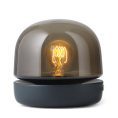Genotropin Drug Description and Correct Use
Genotropin is a synthetic form of growth hormone used to treat various medical conditions related to growth deficiencies. It plays a crucial role in stimulating growth, cell reproduction, and cell regeneration in humans. This article provides a comprehensive genotropin drug description and correct use, ensuring patients and caregivers can utilize this medication safely and effectively.
What is Genotropin?
Genotropin contains somatropin, a man-made Genotropin 12mg Emra-Med drug description and correct use version of the naturally occurring growth hormone produced by the pituitary gland. It is commonly used for:
- Treating growth hormone deficiency in children and adults
- Addressing short stature associated with Turner syndrome
- Managing chronic kidney disease-related growth issues
- Supporting proper growth in children born small for gestational age
Mechanism of Action
The action of Genotropin involves promoting protein synthesis, enhancing fat metabolism, and regulating glucose levels in the body. By mimicking natural growth hormone, it helps stimulate linear growth and improves muscle mass while decreasing fat mass.
Correct Use of Genotropin
Genotropin appropriately is essential for maximizing benefits and minimizing potential side effects. Here are key points regarding its administration:
Dosage Instructions
- Follow the prescribed dosage from your healthcare provider strictly.
- Administer Genotropin via subcutaneous injection, typically once daily.
- Rotate the injection sites to prevent tissue damage.
- Store unused Genotropin in the refrigerator; do not freeze.
Preparation and Administration
Prepare Genotropin as follows:
- Reconstitute the powder with the provided diluent.
- Gently swirl the vial to mix; avoid shaking.
- Inspect the solution for clarity before injecting.
Monitoring Treatment
- Assessing growth progress
- Adjusting dosages as necessary
- Monitoring for potential side effects
Potential Side Effects
Genotropin is generally well-tolerated, some users may experience side effects, including:
- Injection site reactions (redness, swelling, itching)
- Headaches
- Nausea
- Joint pain
If any severe reactions occur, such as difficulty breathing or swelling in the limbs, seek medical attention immediately.
FAQs about Genotropin
Is Genotropin safe for long-term use?
Long-term use should be monitored by a healthcare professional to manage any potential risks or side effects.
Can anyone use Genotropin?
No, it is prescribed solely for individuals diagnosed with specific growth hormone deficiencies or related conditions.
Are there alternatives to Genotropin?
Yes, other growth hormone therapies are available, but the choice depends on individual health needs discussed with a physician.
Conclusion
genotropin drug description and correct use is vital for those who require growth hormone therapy. Always consult with a healthcare provider to ensure safe and effective treatment tailored to your specific condition. Proper usage will facilitate optimal results while maintaining overall health.


























